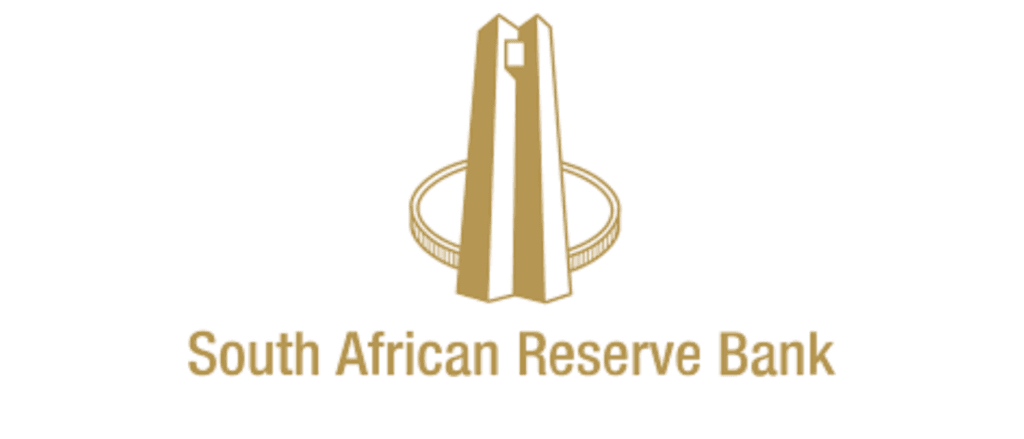Understanding the Role of a Bank Analyst at SARB: Job Description and Insights 2024

Bank Analyst at SARB
Contents
- 1 Introduction to the Bank Analyst Position
- 2 Key Performance Areas and Responsibilities
- 3 Qualifications Required for the Role
- 4 Skills Needed for Success as a Bank Analyst
- 5 Understanding the Regulatory Framework
- 6 The Importance of Prudential Oversight
- 7 Career Path and Growth Opportunities
- 8 Diversity and Inclusion at SARB
- 9 Conclusion and Final Thoughts
Introduction to the Bank Analyst Position

The role of a bank analyst at the South African Reserve Bank (SARB) is pivotal in ensuring the stability and robustness of the banking sector. As financial institutions operate in a dynamic environment, the bank analyst serves as a critical component in maintaining the integrity and soundness of the financial system. The primary purpose of this position is to conduct comprehensive analyses, providing insights that support prudential oversight and regulatory compliance.
ALSO APPLY FOR Exploring Internship Opportunities in Experiential and Work Integrated Learning Fields 2024
Bank analysts are tasked with evaluating the financial health and risk profile of various banking entities. They meticulously assess financial statements, scrutinize risk management frameworks, and monitor market trends. By leveraging advanced analytical skills, they identify potential vulnerabilities and provide recommendations for mitigating risks. This proactive approach not only enhances the performance of individual banks but also contributes to the overall financial stability of the nation.
In addition to risk analysis, bank analysts play a vital role in promoting financial soundness across the banking landscape. They formulate and refine regulatory policies, ensuring that banks adhere to sound practices that mitigate systemic risk. Through regular reports and presentations, these professionals communicate their findings to senior management and stakeholders, fostering informed decision-making within the SARB and the broader financial markets.
The responsibilities of a bank analyst extend beyond mere analysis; they include collaboration with other regulatory bodies and industry stakeholders to shape a resilient banking infrastructure. This interaction is crucial for maintaining an effective regulatory framework that can adapt to new challenges and emerging trends within the financial sector.
Ultimately, the position of a bank analyst at SARB is significant as it provides valuable insights that guide strategic initiatives and policy-making aimed at safeguarding the health of South Africa’s financial system.
Key Performance Areas and Responsibilities
The role of a bank analyst at the South African Reserve Bank (SARB) encompasses a variety of critical responsibilities that contribute to the overall health and efficiency of the banking system. One of the primary tasks is assessing banking strategies. This involves analyzing the effectiveness of different financial products and services offered by banks, ensuring they align with regulatory requirements and meet the needs of consumers. By evaluating these strategies, bank analysts help the SARB maintain a robust financial system that promotes stability and growth.
Another crucial responsibility is risk analysis. Bank analysts meticulously examine various types of risks, including credit, market, and operational risks, associated with banking operations. They utilize quantitative and qualitative methodologies to identify potential vulnerabilities within banks, allowing for proactive measures to mitigate any identified risks. This risk assessment not only protects the interests of individual banks but also safeguards the wider financial ecosystem.
Compliance is a vital area where bank analysts play a significant role. They continually monitor and evaluate adherence to banking legislation and regulations. This includes reviewing banks’ responses to regulatory requests and ensuring that operations comply with established laws. By identifying non-compliance issues, analysts assist the SARB in enforcing regulations that maintain the integrity of the financial system.
Additionally, preparing detailed reports is a fundamental aspect of the bank analyst’s job. These reports synthesize findings from various analyses and provide insights into banking operations and compliance levels. They serve as essential tools for decision-making, helping senior management and stakeholders understand performance trends and regulatory challenges.
Lastly, conducting meetings with bank management is critical for discussing findings and recommendations. These interactions facilitate a collaborative approach to problem-solving, ensuring that banks are equipped to adopt necessary changes based on the analysis performed. The bank analyst’s responsibilities thus span a diverse range of tasks, all aimed at enhancing the operational effectiveness and regulatory compliance of the banking sector at large.
Qualifications Required for the Role
The position of a bank analyst at the South African Reserve Bank (SARB) demands specific qualifications that align with the responsibilities of the role. A foundational requirement is a relevant educational background, typically including at least a bachelor’s degree in fields such as finance, economics, accounting, or statistics. However, many successful candidates hold a postgraduate qualification, which is essential for advanced analytical skills and a deeper understanding of complex financial systems.
A postgraduate degree, such as a Master’s in Business Administration (MBA) with a focus on finance or a Master’s in Economics, is often favored by employers. This advanced education equips candidates with the theoretical and practical knowledge necessary to perform high-level analysis and contribute to critical decision-making processes within the bank.
In addition to academic qualifications, practical experience in the banking or finance sector is highly regarded. Candidates with a minimum of two to three years of relevant work experience are often preferred, as this experience provides valuable insights into the operations of financial institutions and the regulatory environment in which SARB operates. Familiarity with financial analysis, risk management, and compliance measures is crucial for performing the role of a bank analyst effectively.
Moreover, possessing additional certifications can significantly enhance a candidate’s profile. For instance, Chartered Accountant South Africa (CA(SA)) and Associate General Accountant South Africa (AGA(SA)) are globally recognized qualifications that indicate a high level of expertise and proficiency in financial matters. Holding such certifications not only demonstrates a commitment to the profession but also validates the candidate’s capability in achieving the objectives set forth by the SARB.
Skills Needed for Success as a Bank Analyst
To excel in the role of a bank analyst, particularly within the framework of the South African Reserve Bank (SARB), certain key skills are paramount. The complex nature of banking operations necessitates that a bank analyst possesses exceptional analytical thinking abilities. This skill enables the analyst to dissect financial data, discern patterns, and identify potential risks that could affect the stability of financial institutions. Analytical prowess also assists in evaluating economic trends, which is crucial for developing informed predictions and strategic decisions.
Problem-solving skills are equally essential, allowing the bank analyst to navigate challenges that arise from intricate financial situations. This includes developing innovative solutions to mitigate risks, respond to regulatory changes, and enhance the bank’s operational efficiency. Moreover, the ability to analyze problems from different angles and generate actionable insights is critical for fostering sound governance within the banking sector.
Strong communication skills further enhance a bank analyst’s effectiveness. An analyst must convey complex financial concepts and risk assessments to stakeholders, including management and regulatory bodies, in a clear and concise manner. This requires not only verbal communication skills but also proficiency in written communication, as producing accurate and informative reports is a routine aspect of the analyst’s responsibilities.
Lastly, a solid understanding of financial regulations is indispensable for ensuring compliance and safeguarding the integrity of the banking system. Knowledge of local and international financial frameworks enables the bank analyst to assess regulatory impacts and contribute effectively to the organization’s risk management strategies. In summation, mastering these essential skills enhances the role of a bank analyst in promoting financial stability and accountability within the banking sector.
Understanding the Regulatory Framework
The regulatory framework governing banking practices in South Africa is multi-faceted, comprising various legislations and regulatory bodies aimed at ensuring financial stability, consumer protection, and the integrity of the banking system. Central to this framework is the South African Reserve Bank (SARB), which is tasked with overseeing compliance with the regulations stipulated in the South African Reserve Bank Act of 1989. This act sets forth the objectives of the SARB, including the maintenance of price stability and the formulation of the country’s monetary policy.
Bank analysts play a critical role in interpreting and applying the regulatory requirements established by the SARB and related legislation. The Banks Act of 1990 is a particularly significant piece of legislation that outlines the licensing, operation, and supervision of banks in South Africa. Analysts must be well-versed with the provisions of this act, which govern matters such as capital requirements, risk management, and the functioning of mutual banks. Additionally, the Financial Sector Regulation Act of 2017 introduces a twin peaks model of financial regulation, emphasizing both prudential regulation and market conduct, thus adding another layer of complexity to the analyst’s responsibilities.
The SARB also engages in the enforcement of compliance through regular assessments and supervisory measures. Bank analysts must prepare to assist in audits and examinations that evaluate whether banks are meeting regulatory standards. This not only helps in identifying potential risks but also ensures that banks operate in a safe and sound manner, ultimately contributing to the overall health of the South African financial system. Understanding this intricate regulatory landscape is essential for bank analysts, as it not only shapes their everyday functions but also influences broader economic conditions.
The Importance of Prudential Oversight
Prudential oversight represents a crucial component in safeguarding the financial stability of a banking sector. This involves the implementation of a range of regulations and policies designed to monitor and manage risks that banks face. Bank analysts play a significant role in this process, as they are tasked with scrutinizing the operations and financial conditions of banking entities to ensure compliance with required standards. Their assessments form the backbone of effective oversight, ensuring that institutions operate within safe parameters to promote overall financial soundness.
The mandate of prudential oversight includes evaluating capital adequacy, asset quality, management practices, earnings stability, and liquidity risk among banks. By diligently analyzing these elements, bank analysts contribute invaluable insights that inform regulatory decisions, guide banks in risk management practices, and assure stakeholders of the integrity of financial institutions. This monitoring process is not merely a regulatory formality; rather, it is vital for early detection of potential issues that could threaten the stability of the banking sector and, by extension, the broader economy.
Furthermore, the relationship between prudential regulations and financial soundness cannot be overstated. Strong prudential regulations can mitigate systemic risks and prevent bank failures, thereby protecting depositors and maintaining public confidence in the financial system. Bank analysts serve as critical intermediaries in this sense, as their findings and recommendations can prompt necessary adjustments in regulatory frameworks or banking practices. The proactive involvement of these analysts not only contributes to the robustness of individual banking institutions but also enhances the overall resilience of the financial system at large.
Career Path and Growth Opportunities
The role of a bank analyst at the South African Reserve Bank (SARB) is pivotal not only to individual career growth but also to the broader financial sector. Bank analysts play an essential part in assessing financial stability, navigating regulatory frameworks, and facilitating sound economic policies. With the necessary skills, bank analysts can chart a promising career path within SARB and the financial industry as a whole.
After gaining experience and expertise in their initial roles, bank analysts have various potential career advancement opportunities. These may range from senior analyst positions to managerial roles, such as team leader or department head, where they can influence larger projects and strategic initiatives. Continuous professional development is vital in this field, with SARB encouraging analysts to pursue relevant certifications, such as those from the Chartered Financial Analyst (CFA) Institute or the Global Association of Risk Professionals (GARP). Such qualifications not only enhance participants’ analytical skills but also broaden their understanding of the complexities involved in banking and financial regulations.
The work culture at SARB also supports personal and professional growth. The organization places a strong emphasis on mentorship programs, which allow junior analysts to learn from seasoned professionals. This culture of collaboration fosters an environment where continuous learning is encouraged, further empowering bank analysts to take on more substantial responsibilities as they progress in their careers.
Moreover, the benefits of working as a bank analyst at SARB are not limited to career growth. Analysts have access to comprehensive training programs, competitive remuneration, and job security that comes with being part of a reputable institution responsible for maintaining monetary stability in South Africa. Therefore, the role of a bank analyst at SARB presents a multidimensional career landscape, ripe with opportunities for those aspiring to make significant contributions to the financial sector while advancing their careers.
Diversity and Inclusion at SARB
The South African Reserve Bank (SARB) is steadfast in its commitment to fostering a diverse and inclusive workforce. Recognizing the value that diversity brings to organizational culture, team performance, and decision-making processes, SARB has implemented various policies aimed at promoting equal opportunities for candidates hailing from designated groups. These initiatives are not merely a means to fulfill regulatory obligations but are viewed as integral to enhancing the institution’s overall effectiveness.
SARB’s diversity policies encompass a wide range of initiatives designed to ensure that underrepresented groups have equal access to employment and advancement opportunities. This includes recruitment strategies that actively seek out candidates from various demographics. By doing so, SARB is positioning itself to benefit from a variety of perspectives and experiences, which not only enriches discussions but also aids in more comprehensive decision-making.
Additionally, SARB emphasizes support for individuals with disabilities. Inclusive workplace practices extend beyond just hiring; they encompass a commitment to creating a working environment where everyone can thrive. This includes reasonable accommodations, tailored job responsibilities, and tailored professional development programs designed to empower employees with disabilities to reach their full potential.
The importance of diversity in the workplace is supported by numerous studies that indicate diverse teams tend to perform better and generate more innovative solutions. This principle is echoed within SARB’s operational ethos, which recognizes that varying viewpoints can lead to more effective problem-solving and improved organizational outcomes. Thus, SARB not only recognizes diversity as a moral imperative but also as a strategic advantage in navigating the complex landscape of financial regulation and economic stability.
Through these robust diversity and inclusion efforts, SARB is nurturing a workforce reflective of South Africa’s rich multicultural society, ultimately leading to stronger and more effective governance within the institution.
Conclusion and Final Thoughts
In reviewing the pivotal role of a bank analyst at the South African Reserve Bank (SARB), it becomes evident that this position is integral to maintaining the stability and integrity of the financial system. Bank analysts are tasked with a variety of responsibilities, including conducting in-depth financial analyses, assessing risk, and interpreting complex economic data. Their insights contribute significantly to policy formation and regulatory compliance, ultimately safeguarding the broader economy.
The importance of the bank analyst role cannot be overstated. Analysts serve as a crucial link between financial institutions and regulatory bodies, ensuring that banking practices align with established legal frameworks and best practices. In a rapidly evolving economic landscape, where financial regulations are continually updated, the expertise of bank analysts becomes essential in adapting to changes and providing timely insights that foster a stable financial environment. Their work not only influences the decisions made at SARB but also affects economic growth, consumer protection, and market confidence.
For individuals considering a career as a bank analyst, the path offers not only challenges but also numerous opportunities for professional growth and development. This position equips analysts with the skills necessary to excel in various financial sectors, paving the way for career advancement in economics, finance, or regulatory affairs. Moreover, being part of an institution as influential as SARB provides a unique platform to make a meaningful impact on the nation’s economic health and governance.
In conclusion, the role of a bank analyst at the South African Reserve Bank is crucial, extending beyond traditional finance into the realms of policy influence and economic oversight. Given the critical nature of their work, pursuing this career can prove both rewarding and impactful, shaping the future of the banking sector and the economy at large.
